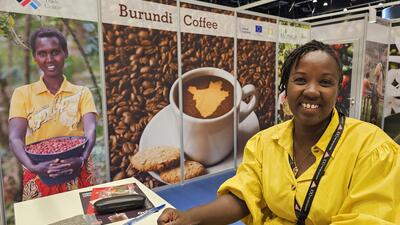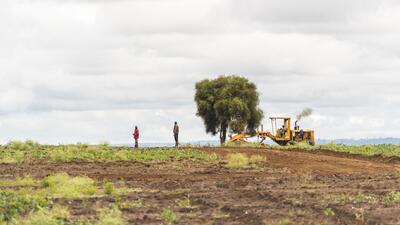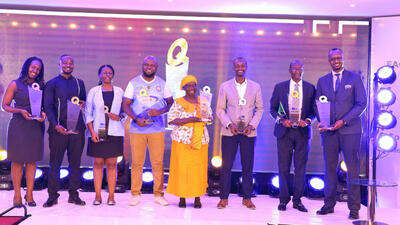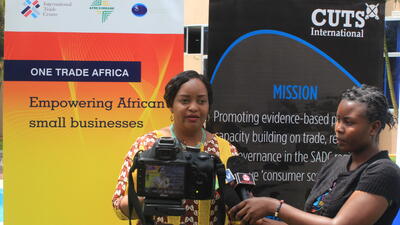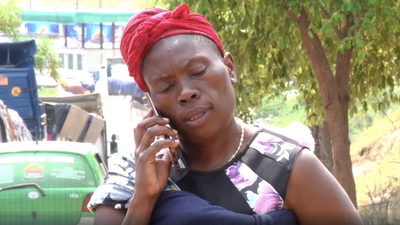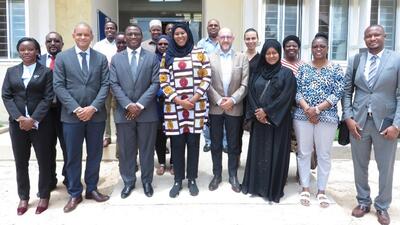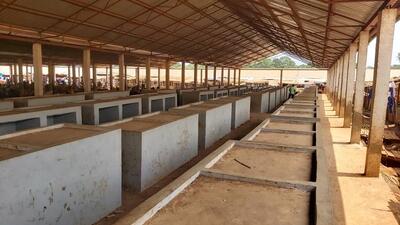
Writing Tanzania’s success story
Sustainable development through trade under One UN in Tanzania
Who could have predicted what was in store for all of us in 2020?
Throughout my career with the United Nations, I have worked in wonderful teams, tackling many critical situations, but COVID-19 and its aftermath are unprecedented.
Right from the beginning, the pandemic showed its adverse effects on the global economy, with projections of a reduced gross domestic product for the year. Shifts in demand and disruptions in the supply chain also pose logistical challenges. This phenomenon has not spared the African continent, including the East African region.
The situation calls for well-coordinated targeted actions by the international community.
The United Republic of Tanzania has been playing a cohesive role in the region. In 2007, as part of its willingness to continue contributing towards peace and prosperity, it became one of eight countries worldwide to pilot the UN Delivering as One reform.
Since then, the UN in Tanzania has been developing new ways of working with the government to achieve greater impact by being more results oriented, reducing duplication of efforts, and improving coherence and efficiency.
Tanzania Development Vision 2025, Zanzibar Vision 2020 as well as the Sustainable Development Goals are central to the efforts of 23 UN agencies whose work is coordinated from my office.
Agricultural production contributes significantly to the country’s economy. Therefore, in our collective pursuit to navigate the COVID-19 storm, resilient and organized agricultural and trade sectors hold fundamental importance for standing tall in the post-pandemic world.
Collaboration can go a long way
A dynamic member of the United Nations family, the International Trade Centre (ITC) has been supporting the strengthening of trade capacity in the United Republic of Tanzania. ITC has designed and implemented a series of programmes: its activities range from large projects focusing on regional trade integration in the East African Community (EAC), to targeted actions for building the capacity of remote areas to sustain migration and refugee settlements.
The European Union–-East African Community Market Access Upgrade Programme (MARKUP) is a regional development initiative conceived by the EAC Secretariat in partnership with the European Union (EU) and implemented by ITC and Deutsche Gesellschaft für Internationale Zusammenarbeit (GIZ). The EU funds the programme.
From its headquarters in Arusha, MARKUP is working to increase exports of agribusiness and horticultural products from Burundi, Kenya, Rwanda, Tanzania and Uganda. It also promotes regional integration and access to the European market by addressing the specific challenges that small and medium-sized enterprises, trade and investment support institutions and policymakers face in accessing regional and EU markets.
Within two years only, the programme has achieved milestones in the country for developing value chains of avocado, coffee, tea and spices. The collaboration with Tanzania Spices Association (TASPA) to revamp the organization mobilized around 1,000 cinnamon farmers who joined the trainings on quality, new cultivation and processing techniques for the improved value addition of cinnamon. As a result, TASPA is now officially part of the European Spices Association.
In addition, a Dutch-Tanzanian joint venture, Trianon Investments was launched for processing and exporting high quality spices from Tanzania. This collaboration is another result of efforts organized through MARKUP.
Tanzanian companies are benefitting a great deal by participating in online versions of trade fairs such as the recent United Fresh Live! trade fair that had four Tanzanian representatives from the private and public sectors.
MARKUP also exhibited at key national and international trade fairs in Tanzania. Its most recent participation was in the Dar es Salaam International Trade Fair, also known as Saba Saba, in July and the Nane Nane trade fair in August this year.
Another ONE-UN effort in Tanzania is the Kigoma Joint Programme under the framework of UNDAP II and funded by Sweden and Norway.
The region of Kigoma is host to a community of over 300,000 refugees coming from Burundi and the Democratic Republic of the Congo. The government’s priority is to turn Kigoma into a trade and business hub at a crossroad with the neighbouring countries.
Online systems and mobile applications are emerging as an integral part of efforts to deal with the coronavirus and its lasting effects. These digital solutions will certainly benefit the Tanzanian business community, in particular young entrepreneurs, by contributing to a stronger and smoother economic recovery.
The Agribusiness Tanzania App, which is also in the works, will be the fruit of the Kigoma Joint Programme’s collaboration with a local youth organization. This digital platform will offer access to markets through mobile and other networks, enabling smallholder farmers and buyers to access real time information about specific agricultural products, market availability, prices and intelligence.
Within the framework of the UNDAP II, ITC’s joint efforts with 16 other UN agencies in supporting women and youth from the districts of Kasulu, Kibondo and Kakonko for building sustainable livelihoods in the agricultural sector are praiseworthy. These efforts will benefit both the host and refugee communities.
Jointly with United Nations Capital Development Fund, ITC is supporting the extension of the Mvugwe aggregation centre in Kasulu District, which will provide a venue for capacity building on standard operating procedures for farmers and cooperatives, in addition to a storage facility.
Sustainable recovery is viable
The COVID-19 pandemic has brought with it numerous problems and challenges. At the same time, it has obliged all UN organizations to unite their forces and work together even more closely. This is an opportunity to join hands to overcome our common challenges for sustainable recovery.
Tanzania has recently made some remarkable economic developments. The UN and all organizations working under the UN Country Team are privileged to have had an opportunity to contribute to these efforts in creating an enabling environment to support the economic, social and human development of the country.




